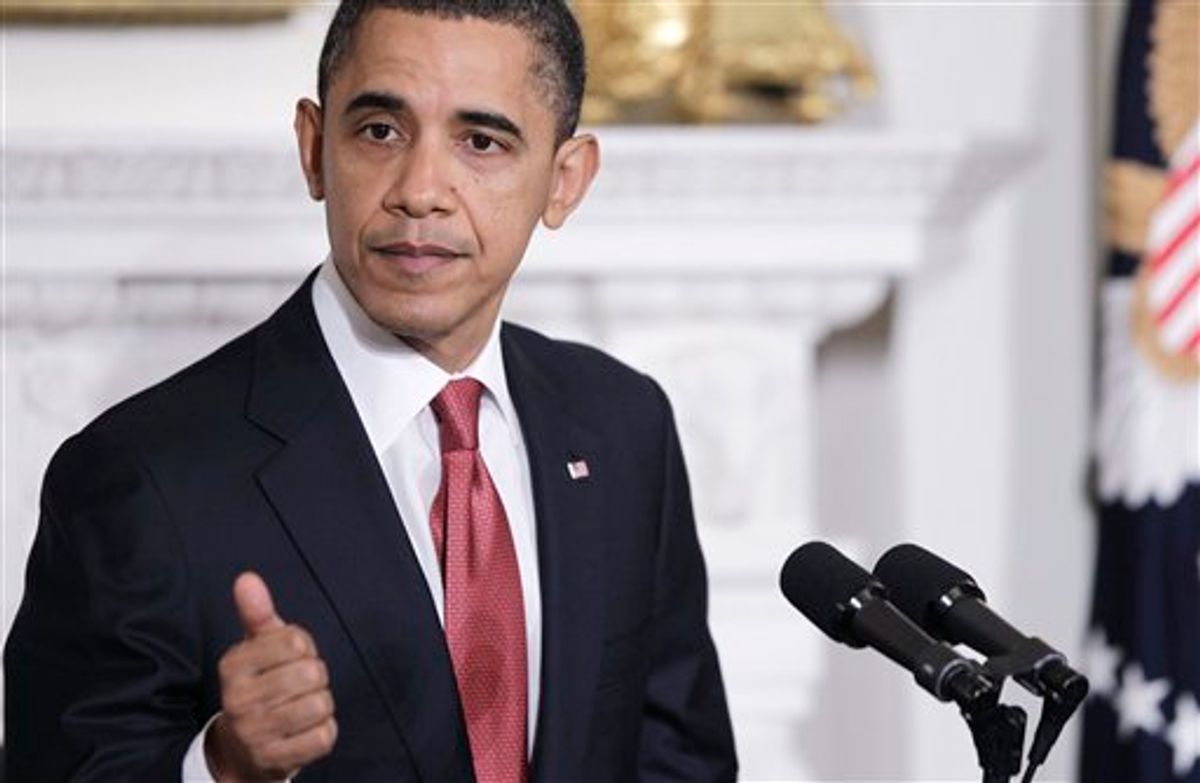With broad Democratic support, the House overwhelming passed a two-week stopgap spending plan cutting $4 billion from the federal budget. The Senate overwhelmingly passed the measure Wednesday morning, 91-9, and there are no signs that the White House plans to object.
On Monday, before either the House or Senate had voted, Politico's Jonathan Allen had already declared Republicans the victors in Round 1 of the budget fight.
Democrats threw in the towel Friday, just two days after delivering a chest-thumping rejection of the GOP plan to forestall a government shutdown for two weeks.
In doing so, they handed Republicans a technical knockout in the first in a series of epic budget fights. Democrats agreed to $4 billion in cuts over the first two weeks in March, a concession that may give Republicans the upper hand for the time being as the two sides try to agree on the rest of the fiscal 2011 budget and the fiscal 2012 budget and to avoid a government default that would be more serious than a short-term shutdown.
The Hill reported that even Democrats agree with this analysis, with a caveat:
Senate Democrats conceded Tuesday that House Republicans won round one of the budget fight, but they are vowing a bigger battle later this month.
It might be a little too soon to be dubbing a champion. The Republican proposal sailed through largely because it eschewed any cuts in core Democratic priorities -- in fact, the House leadership asked for cuts only in areas that the White House had already suggested as likely targets. How exactly it is a victory for Republicans when they put aside, for now, their plan to defund healthcare and Planned Parenthood and the EPA or gut regulatory oversight for the financial sector? The real battle is clearly to come.
But there is one big question mark. The White House has been awfully quiet the last two weeks. On Feb. 15, Obama threatened to veto any budget deal that would cut "core government functions and investments." But since then, there's been hardly a peep. Only at the very last minute did the White House enter the fray, seeking on Monday to extend the stopgap agreement to 30 days in order to give the Senate more time to come up with a comprehensive plan for the rest of the year that would protect White House priorities. But that went absolutely nowhere.
Obama has got to step up his game. Maybe he's been biding his time, waiting for the right moment -- when the GOP goes after programs sure to stir up a public ruckus. But the ease with which Republicans have moved the first round of cuts through Congress seems bound to increase the GOP's appetite for deeper gouging. There are too many moderate Democratic senators facing tough 2012 election fights to count on sustained resistance from that corner, without some help from the White House.
When is it going to arrive?
UPDATE: The Hill reports Obama springing into action after the Senate vote. The president called on congressional leaders to meet immediately with Vice President Biden, White House chief of staff Bill Daley and budget director Jack Lew to start hammering out a longer-term budget plan.
Obama laid out a vision of a longer-term spending bill that is "free of any party's social or political agenda" -- seemingly referring to provisions relating to healthcare reform and abortion funding.
"This agreement should cut spending and reduce deficits without damaging economic growth or gutting investments in education, research and development that will create jobs and secure our future. This agreement should be bipartisan, it should be free of any party's social or political agenda, and it should be reached without delay," he said.

Shares